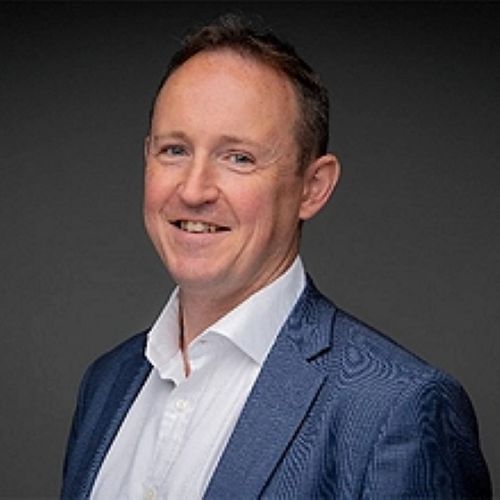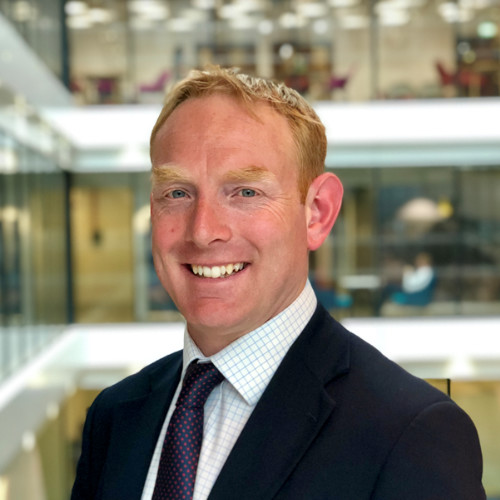Event Recording
Climate & Nature Risk Practitioner’s Month
Cutting Edge Tools and Guidance for Finance Professionals
CFRF Series | October 30; November 6, 13, 20 | 4:00 PM GMT
Details
November 20, 2025
4:00 PM - 5:00 PM
Online
Link Emailed Upon Registration
Contact
Questions can be directed to GARP Events at events@garp.com.
Share
Overview
This four-week series of webcasts marks the release of a brand-new set of insights from the Climate Financial Risk Forum (CFRF), the world’s first forum bringing together practitioners and regulators to develop best practices for climate and nature-related risk management.
GARP is excited to once again hosting a series of webcasts to showcase the CFRF’s latest outputs, the result of a collaborative effort between banks, insurers, and asset managers, as well as consultancies and academics that have been convened by the Bank of England and the Financial Conduct Authority.
In these webcasts, our speakers will share pioneering tools and guidance – designed by and for finance professionals – to help tackle the escalating risks from climate change and nature loss.
Dr. Maxine Nelson is a Senior Vice President at the GARP Risk Institute, GARP’s research and thought leadership arm, where she focusses on climate financial risk management.
She has extensive experience in risk, capital and regulation gained from a wide-ranging variety of roles, including Global Head of Wholesale Risk Analytics and Head of Capital Planning at HSBC, significantly expanding counterparty credit risk management at the UK Financial Services Authority during the last financial crisis, leading the credit risk team at KPMG London, senior credit risk consultant at Oliver Wyman, and embedding operational risk analytics globally at National Australia Bank. Maxine has a degree in mechanical engineering and a PhD characterizing how best to apply probability theory to real world problems.
}', 8='{type=string, value=Maxine}', 9='{type=string, value=Nelson}', 10='{type=number, value=0}'}Head of Climate Risk, Barclays
}', 4='{type=string, value=https://s3-us-west-2.amazonaws.com/garpsalesforcepublic/Event_Speaker__c/a2fPo000002CSqbIAG/a2rPo000000W63tIAC_Billy Suid 500x500.jpg}', 5='{type=string, value=Billy is Head of Climate Risk for Barclays, a function created in 2020 to support Barclays’ ambition to become a net zero bank by 2050 and help accelerate the transition to a low-carbon economy.
He is responsible for developing Barclays’ climate risk methodologies (including scenario analysis) and managing climate risk in the bank’s portfolio globally. Billy is a member of the Barclays Group’ Sustainability Committee and sits on the investment committee of its Sustainable Impact Capital portfolio.
He has had the pleasure of chairing the Bank of England Climate Financial Risk Forum (CFRF) working group on financial resilience this year.
}', 8='{type=string, value=Billy}', 9='{type=string, value=Suid, CFA}', 10='{type=number, value=0}'}Senior Manager, Climate and Credit Risk Advisory, EY
}', 4='{type=string, value=https://s3-us-west-2.amazonaws.com/garpsalesforcepublic/Event_Speaker__c/a2fPo00000EfLtFIAV/a2rPo000004XtkzIAC_Hui Ern Ng 500x500.jpg}', 5='{type=string, value=Ernie is a Senior Manager in EY’s Climate and Credit Risk team with 10+ years’ experience in risk management focussing on quantitative modelling, credit risk, and climate related financial risk. For the past 5 years, Ernie has been particularly involved in climate scenario analysis and supporting banks to embed climate (and more recently environmental) risks and opportunities into the risk management framework.
}', 8='{type=string, value=Hui}', 9='{type=string, value=Ng}', 10='{type=number, value=0}'}Product Manager, ICE Climate
}', 4='{type=string, value=https://s3-us-west-2.amazonaws.com/garpsalesforcepublic/Event_Speaker__c/a2fPo00000EfMFpIAN/a2rPo000004YSagIAG_Saeed Sanei 500x500.jpg}', 5='{type=string, value=Saeed is a Product Manager at Intercontinental Exchange’s (ICE) Climate Analytics team, with a specific focus on climate transition financing risks and opportunities, impact assessment, and holistic physical risk assessments. Saeed’s role within ICE has included work on Avoided Emissions, Sustainable Bond Use-of-Proceeds analytics, and in particular, co-chairing the United Nations Environmental Programme - Finance Initiative Risk Centre’s ‘Risk Assessment & Tools Working Group’ to demonstrate and develop ICE Climate’s Transition Financing Analytics module.
Saeed is an active representative of ICE both within CFRF and among other industry groups, and is active in bringing environmental considerations and climate risk at the forefront of the financial sector.
}', 8='{type=string, value=Saeed}', 9='{type=string, value=Sanei}', 10='{type=number, value=0}'}Director, Strategy, Risk & Transactions Advisory, Deloitte
}', 4='{type=string, value=https://s3-us-west-2.amazonaws.com/garpsalesforcepublic/Event_Speaker__c/a2fPo00000EfM4XIAV/a2rPo000004JNmbIAG_Jack McKeown 500x500.jpg}', 5='{type=string, value=Jack is a Director in Credit Risk Measurement Team within Deloitte’s Strategy, Risk, & Transactions Advisory practice, leading on climate risk stress testing and stress testing for banks. Over the past 3 years, Jack has supported a range of banks in developing their climate risk and stress testing capabilities. This included work on scenarios, models, frameworks, and processes.
Prior to joining Deloitte in 2023, Jack spent 5 years as the Head of Stress Testing at the Bank of England, leading the concurrent stress testing programme of major UK banks as well as the annual stress tests (ACS) to set bank capital buffers and assess the resilience of banks and the system. Jack also led the exploratory stress testing programme, including the climate stress tests published in 2022. In total, Jack spent 22 years at the Bank of England advising policymakers on monetary and financial stability.
}', 8='{type=string, value=Jack}', 9='{type=string, value=McKeown}', 10='{type=number, value=0}'}Head of Climate and Sustainability Risk, Aviva
}', 4='{type=string, value=https://s3-us-west-2.amazonaws.com/garpsalesforcepublic/Event_Speaker__c/a2fPo000002CVlFIAW/a2rPo000000W6jpIAC_Loubna Benkirane 500x500.jpg}', 5='{type=string, value=Loubna is an Actuary with 20+ years’ experience in risk management. In the last six years, Loubna has been particularly focusing on the embedding of climate and sustainability-related risks and opportunities within Aviva’s governance, risk management and reporting frameworks.
Loubna is a passionate about sustainability challenges. She has supported the PRA/FCA Climate Financial Risk Forum (CFRF) since its establishment in 2019. She also participates in several other industry leading forums with the objective to raise awareness, influence, support the transition to net zero and build best practice across the financial sector.
}', 8='{type=string, value=Loubna}', 9='{type=string, value=Benkirane}', 10='{type=number, value=0}'}US Lead, Climate Risk, Barclays
}', 4='{type=string, value=https://s3-us-west-2.amazonaws.com/garpsalesforcepublic/Event_Speaker__c/a2fPo00000EfLRpIAN/a2rPo000004Y39FIAS_Claire Zhang 500x500.png}', 5='{type=string, value=Claire Zhang specializes in climate risk management and regulatory compliance across U.S. and Europe at Barclays. Previously, she worked in quantitative modeling and stress testing, bringing deep expertise in applying analytical approaches to financial risks.
}', 8='{type=string, value=Claire}', 9='{type=string, value=Zhang}', 10='{type=number, value=0}'}Partner, Partners in Performance
}', 4='{type=string, value=https://s3-us-west-2.amazonaws.com/garpsalesforcepublic/Event_Speaker__c/a2fPo000002CSDtIAO/a2rPo000000W5kaIAC_Catherine Bremner 500x500.jpg}', 5='{type=string, value=Catherine is a Principal Director in Partners in Performance, part of Accenture in their Energy Transition Practice. Outside of Accenture, Catherine is on the Board and RemComm Chair of the Met Office, Board of Energy Systems Catapult and Co-chair of Adaptation Working Group of the Climate Change Risk Forum. With over 25 years of experience in sustainable development, finance, strategy and change management, she is also a highly respected leader in green finance.
Previously she was Chief Strategy Officer at Impax responsible for line managing Impax’s risk and compliance functions and coordinating the build-out of Impax’s digital strategy, inclusive of data architecture and AI capability. Before joining Impax in 2021, Catherine spent five years at the UK Government’s Department for Business, Energy & Industrial Strategy, including acting as Director General, responsible for around 500 staff tasked with developing the UK’s Net Zero Strategy and International Climate and Energy policy. She also chaired the UK Government’s Climate and Energy G7 Presidency in 2022. Before this, she was Global Head of Environmental Sustainability at Australian financial services firm ANZ. She was also Chief Operating Officer at Low Carbon Australia and Head of International Development at the Carbon Trust.
}', 8='{type=string, value=Catherine}', 9='{type=string, value=Bremner}', 10='{type=number, value=0}'}Head of Sustainable Finance Solutions, Standard Chartered
}', 4='{type=string, value=https://s3-us-west-2.amazonaws.com/garpsalesforcepublic/Event_Speaker__c/a2fPo00000EfQZbIAN/a2rPo000004JXXRIA4_Alex Kennedy 500x500.png}', 5='{type=string, value=Alex is responsible for offering bespoke Sustainable Finance solutions to the Bank and to its clients. Alex has been instrumental in the issuance of the Bank’s three Sustainability Bonds and in the Bank’s launch of the world-first sustainable money market deposit in 2019. Since then, he has led the rollout of ESG derivatives, ESG repos, sustainable savings accounts, sustainable trade finance, green mortgages and an NDC aligned climate loan. He is the Bank’s lead on frameworks (green, social and transition), taxonomies, and sustainable finance impact reporting. He also leads the Bank’s work on Adaptation & Resilience, and social finance.
As well as being a trustee of the Vision Catalyst Fund, Alex helped establish and now sits on the board of a social enterprise operating between London and Kenya that serves to empower young people through employment.
}', 8='{type=string, value=Alex}', 9='{type=string, value=Kennedy}', 10='{type=number, value=0}'}Executive Director, Earth Capital Nexus and Professor in Practice, Natural Capital, Risk and Finance at the London School of Economics
}', 4='{type=string, value=https://s3-us-west-2.amazonaws.com/garpsalesforcepublic/Event_Speaker__c/a2f1W000001mjkqQAA/a2rPo000000e3C5IAI_Nicola Ranger New 500x500.jpg}', 5='{type=string, value=Professor Nicola Ranger is Executive Director of Earth Capital Nexus and Professor in Practice of Natural Capital, Risk and Finance in the Grantham Research Institute on Climate Change and the Environment at the London School of Economics and Political Science. She leads interdisciplinary research and policy engagement at the nexus of finance, investment, natural capital, resilience and sustainable development with a global focus.
Professor Ranger is a globally recognized expert in sustainable finance, climate and nature, and systemic resilience. Her research focuses on integrating climate and nature risks into financial decision-making, developing innovative financial instruments, green fiscal policy, debt sustainability and mobilizing investment for sustainable development. She works closely with financial institutions, central banks, governments, and international organizations.
Nicola brings two decades of experience working in senior roles across government, research, international financial institutions and the private sector and has published extensively on topics related to sustainable finance, risk, resilience, nature and development. She is also the founding Director of the Resilient Planet Finance Lab in collaboration with the University of Oxford’s Environmental Change Institute and serves on several high-level advisory groups, including those for the World Bank, the Bank of England’s Climate Financial Risk Forum, the Network for Greening the Financial System, TRASE, Natural State and PlanetaryX.
}', 8='{type=string, value=Prof. Nicola}', 9='{type=string, value=Ranger}', 10='{type=number, value=0}'}Director of Systemic Risk Assessment, Accelerator for Systemic Risk Assessment (ASRA)
}', 4='{type=string, value=https://s3-us-west-2.amazonaws.com/garpsalesforcepublic/Event_Speaker__c/a2fPo000004g8i3IAA/a2rPo000000gM5lIAE_Ajay 500x500.JPG}', 5='{type=string, value=Dr Ajay Gambhir is Director, Systemic Risk Assessment, at ASRA (the Accelerator for Systemic Risk Assessment, hosted by the UN Foundation). He leads on ASRA’s approach to assessing systemic risks, as well as identifying and curating supporting data, evidence and models. Ajay is also a Visiting Senior Research Fellow at the Grantham Institute, Imperial College London, where he previously worked as a climate change and energy academic, leading a team on integrated assessment modelling of low-carbon development pathways.
}', 8='{type=string, value=Ajay}', 9='{type=string, value=Gambhir}', 10='{type=number, value=0}'}Director of Sustainability Risk, Baillie Gifford
}', 4='{type=string, value=https://s3-us-west-2.amazonaws.com/garpsalesforcepublic/Event_Speaker__c/a2fPo000002CUQzIAO/a2rPo000000XwwTIAS_Sandy Trust 500x500.jfif}', 5='{type=string, value=Sandy is Director of Sustainability Risk at Baillie Gifford. He is the Past-Chair, of the Institute and Faculty of Actuaries Sustainability Board and part of the International Actuarial Association’s Climate Change and Sustainability Committee. He is the lead author of a series of collaborative research reports which bring together science and risk, seeking to improve policymaker level risk management. The latest report ‘Planetary Solvency – finding our balance with nature’ explores how actuarial techniques can help society manage climate change and other risks.
This builds on the findings from ‘Climate Scorpion – the sting is in the tail’ – which highlighted concerns around carbon budgets being unrealistic and ‘The Emperor’s New Climate Scenarios’ – which highlighted the limitations of commonly used climate scenarios.
Sandy’s personal mission is to help re-connect finance and the economy to nature and the biosphere to deliver a future worth living in, he works with investors and advises a number of regulator and policymaker groups on these topics.
}', 8='{type=string, value=Sandy}', 9='{type=string, value=Trust}', 10='{type=number, value=0}'}Associate Director, Climate Risk & Strategy, KPMG
}', 4='{type=string, value=https://s3-us-west-2.amazonaws.com/garpsalesforcepublic/Event_Speaker__c/a2fPo00000EfE8eIAF/a2rPo000004JZfhIAG_Jheryl Cabey.jpg}', 5='{type=string, value=Jheryl brings extensive expertise in developing climate strategies, conducting climate scenario analyses, and embedding nature-related considerations into business operations. With a strong focus on the financial services sector, Jheryl has advised leading institutions on a wide range of topics, including transition planning and the evolving nature data landscape. Jheryl is highly knowledgeable on emerging trends in nature, having led initiatives to design nature scenarios, leverage geospatial data, and develop nature financing solutions.
}', 8='{type=string, value=Jheryl}', 9='{type=string, value=Cabey}', 10='{type=number, value=0}'}Speakers

Loubna Benkirane

Catherine Bremner

Jheryl Cabey

Ajay Gambhir

Alex Kennedy

Jack McKeown

Dr. Maxine Nelson

Hui Ern (Ernie) Ng, SCR

Prof. Nicola Ranger

Saeed Sanei

Billy Suid, CFA

Sandy Trust

Claire Zhang
Moderators

Dr. Maxine Nelson

Jo Paisley
Agenda/Schedule
*Date and Time noted as
-
As climate-related physical risks become increasingly material for financial institutions, data vendors are fulfilling an important need in the climate risk management ecosystem. However, vendors can differ widely in how they assess and project risks at the property level.
To help practitioners navigate this landscape, the GARP Risk Institute under the guidance of the CFRF undertook a comprehensive benchmarking exercise with 13 leading vendors, including Climate X, Fathom, First Street, ICE, JBA Risk Management, Jupiter Intelligence, Moody’s, MSCI, Planetrics (a McKinsey & Company solution), Riskthinking.AI, Twinn by Haskoning, S&P Global, and XDI.
This webcast will examine:
- How different vendors approach physical risk modelling, from their modelling approaches, and methodologies, to scenario and hazard selection;
- How the vendors deal with incomplete asset location data, and the resulting implications for physical risk assessments;
- How vendors differ in their assessments of physical risks affecting a common portfolio of 100 properties across the U.K., Europe, the U.S., and Asia.
Speakers
Dr. Maxine Nelson, SVP, GARP Risk Institute
Billy Suid, CFA, Head of Climate Risk, Barclays
Moderator
Jo Paisley, President, GARP Risk Institute
-
Scenario analysis is a critical tool for assessing climate-related risks and opportunities, and two new resources from the CFRF provide fresh guidance for financial institutions in 2025.
The refreshed Online Scenario Analysis Narrative Tool – first launched in March 2023 – incorporates the latest NGFS Phase V scenarios, including coverage across 33 sectors, asset classes, and sovereigns, and signposts to four NGFS short-term scenarios, highlighting key variables, assumptions and limitations. Developed by the industry for the industry, the tool generates tailored reports to help firms better understand their potential exposure to climate change, and thus embed climate into governance, strategy, risk management, and reporting.
Alongside this, the new Climate Scenario Analysis Case Studies publication brings together nine quantitative examples from leading financial institutions, academics, and data providers. Covering diverse geographies, asset classes, and time horizons, these case studies highlight how quantitative scenario analysis can be used to drive decision making.
This webcast will explore:
- Key features of the updated Online Scenario Analysis Narrative Tool, including expanded coverage and tailored reporting outputs;
- How to use the updated Online Scenario Analysis Narrative Tool and associated reports, including an overview of the NGFS long-term 'Fragmented World' scenario, and practical application and insights through two illustrative examples (energy underwriting and UK sovereigns); and
- Practical insights from case studies demonstrating how banks, insurers, and asset managers are applying quantitative scenario analysis to estimate financial impacts.
Speakers
Loubna Benkirane, Head of Climate and Sustainability Risk, Aviva
Jack McKeown, Director, Strategy, Risk & Transactions Advisory, Deloitte
Hui Ern (Ernie) Ng, SCR, Senior Manager, Climate and Credit Risk Advisory, EY
Saeed Sanei, Product Manager, ICE Climate
Claire Zhang, US Lead, Climate Risk, Barclays
Moderator
Dr. Maxine Nelson, SVP, GARP Risk Institute
-
As physical climate risks intensify, the financial sector faces growing pressure to move from high-level strategies to practical, operational responses. The 2025 report of the CFRF Adaptation Working Group provides a toolkit to help financial institutions integrate resilience into decision-making across asset classes, sectors, and geographies.
Building on the 2024 report Mobilising Adaptation Finance to Build Resilience, this year’s output focuses on data, modelling, and financial mechanisms that can mainstream adaptation into financial systems, from granular asset-level assessments to sovereign risk analysis.
This webcast will explore:
- Practical frameworks and tools, including updates to the Aim–Build–Contingency (ABC) framework, adaptation-inclusive transition plans, and methods to strengthen data, modelling, and scenario analysis;
- Financial mechanisms and incentives, from pricing, capital, and product design levers that reward resilience, to approaches for embedding adaptation value into credit modelling and investment decisions; and
- How adaptation can be incorporated at multiple system levels, from asset-level flood risk to sovereign creditworthiness and international finance access.
Speakers
Catherine Bremner, Partner, Partners in Performance
Alex Kennedy, Head of Sustainable Finance Solutions, Standard Chartered
Moderator
Jo Paisley, President, GARP Risk Institute
-
Financial institutions are increasingly recognizing that climate and nature risks are inseparable, with biodiversity loss, ecosystem degradation, and feedback loops amplifying systemic risks across markets. Yet integrating nature into risk frameworks remains a challenge.
To address this, the CFRF has published a new report exploring the climate-nature nexus and its implications for financial stability and decision-making. Building on its first nature-related risk publication, the paper provides practical guidance for risk managers, portfolio managers, analysts, and climate leads.
This webcast will explore:
- Key principles for assessing systemic risks from nature degradation and how these can cascade through financial systems;
- Practical approaches to embedding nature into existing climate risk frameworks, including scenario analysis and strategic planning;
- Case studies and tools such as the TNFD LEAP framework to support implementation;
- Data challenges and a methodology for developing plausible, adverse nature-climate scenarios; and
- Opportunities for resilience and mitigation through nature-based solutions.
Speakers
Jheryl Cabey, Associate Director, Climate Risk & Strategy, KPMG
Ajay Gambhir, Director of Systemic Risk Assessment, Accelerator for Systemic Risk Assessment (ASRA)
Prof. Nicola Ranger, Executive Director, Earth Capital Nexus and Professor in Practice, Natural Capital, Risk and Finance at the London School of Economics
Sandy Trust, Director of Sustainability Risk, Baillie Gifford
Moderator
Dr. Maxine Nelson, SVP, GARP Risk Institute
October 30, 2025
November 6, 2025
November 13, 2025
November 20, 2025
See What's Upcoming
Explore our calendar of events on financial risk, AI, sustainability and climate, and more.